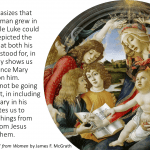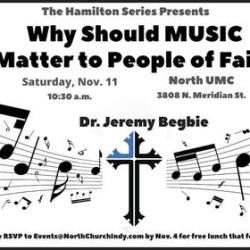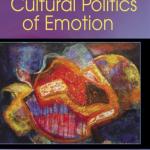Composer Delvyn Case has set the Elohist’s version of the story of Abraham’s sacrifice of Isaac – in which Isaac is not spared – to music in a remarkable, powerful piece that words won’t do justice to, so let me be quiet and offer this recording of the world premiere for you to listen to:
Words can of course nevertheless be helpful in framing and interpreting music, and this instance is no exception. Have a look at what Del says about the piece on his website.
I had the privilege of having Del as a guest in my class on the Bible and Music via Zoom, where he talked by way of introduction about his work as a composer, and then we listened to the piece together and students asked questions, some really thoughtful and insightful ones that made me really happy as we near the end of a semester exploring music together. The way that he incorporates familiar music at the decisive moment of sacrifice, and what he does with it, works powerfully. The whole piece serves to challenge the way we have made violence redemptive and woven it into the fabric of our religions, cultures, and worldviews.
For me, as with the flood and many other disturbing stories in the Bible, being aware of the history of redaction and reworking helps me make sense of its meaning. When the flood is a given an author has to work with, there is no way to eliminate the horror, and a risk that adapting it to a monotheistic framework might actually make matters worse. In the case of the Isaac story, recognizing there might be a version in which Abraham sacrificed Isaac actually helps make sense of how the story can simultaneously be one that assumes the legitimacy of a divine call to sacrifice one’s child, and part of a trajectory seeking to challenge that same practice. In redacting the traditions the author worked with them and reframed them, reinterpreting them while not preventing the older strata from being visible. Much the same process continues today, and hiding the past as though it could simply be forgotten rarely if ever works. Del’s musical setting helped me think about the story, and connect with it emotionally, in new ways that I found extremely valuable not only as a Christian reader of the Bible but also as a biblical scholar. I hope that your experience of the music will be similarly rewarding.
On the source material that is set and which inspired the work see the following articles:
Candida Moss, “Was Abraham a Murderer?” Daily Beast Apr. 22th, 2018.
Tzemah Yoreh, “The Sacrifice of Isaac in Context: Recovering a Lost Ending of the Akedah.” TheTorah.com (2014).
Haviv Rettig Gur, “When Abraham Murdered Isaac.” Times of Israel November 28th, 2012.
Also relevant is Koog P. Hong, “Abraham, Genesis 20-22, and the Northern Elohist.” Biblica 94, no. 3 (2013): 321–39.
Also related to the Bible and music, Bob MacDonald has been blogging about his oratorio that incorporates the music indicated by the cantillation marking in the Masoretic text as deciphered by musicologist Suzanne Haik-Vantoura.

















